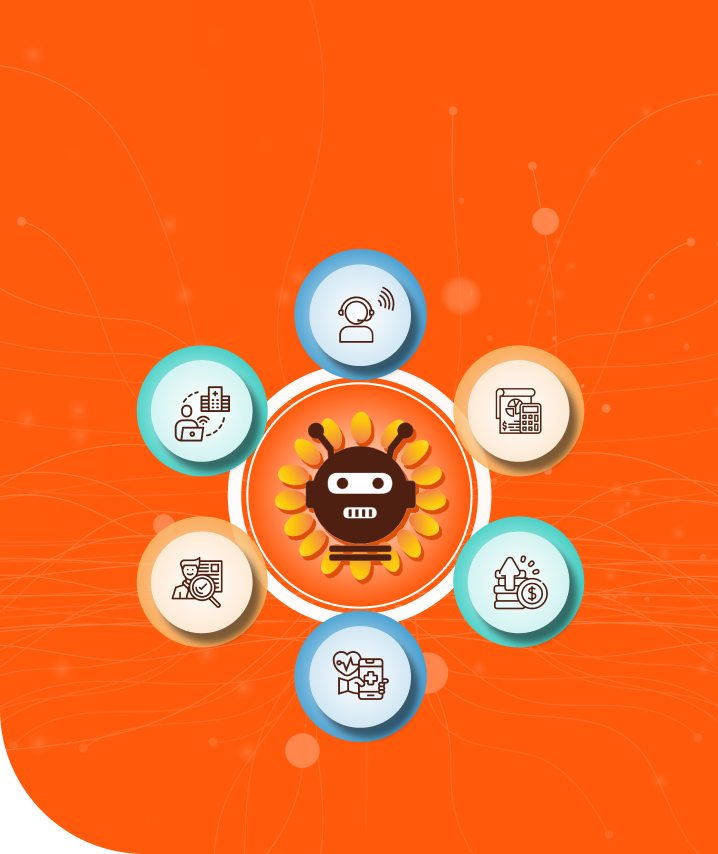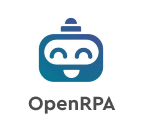Business Process Automation For HealthCare Providers
Put the focus back on patient care with the help of process automation experts from Sunflower Lab
Your idea is 100% protected by our Non-Disclosure Agreement


A History of Humanizing Healthcare
with Automation Solutions
Process automation helps put humans back in healthcare by offloading repetitive, rule-based tasks from care
providers so they can spend more time with patients. These bots mimic human behavior to complete actions like logging into applications, moving files, and filling out forms. These actions can be applied to several different healthcare workflows like billing processing, claim administration, appointment scheduling, and more. Sunflower Lab process automation experts can help you and your team realize faster processing times, fewer errors, and rapid ROI. By automating operational processes with RPA, healthcare organizations, providers, and patients alike can thrive.
Remedy Your Most Time-Consuming, Repetitive, andExhausting Workflows with Process Automation
Our Android app development services have helped entrepreneurs, businesses, and Fortune 500 companies in over 12 different industries achieve success. We take the time to understand our clients’ business problems todeliver tailor-made solutions. While all of our Android apps are personalized, youcan count on our products to be smart, sleek, and secure every time.
Billing Process
Medical billing, payments, and insurance claims processing are highly repetitive and time consuming. You can use RPA bots to perform all the clicking, copying, and pasting previously performed by humans to extract patient data from Electronic Health Records and paste it into your EHR or billing system, all while adhering to programmed compliances. So, while the software bots complete this dull and redundant workflow in the background, billers can spend more time getting the claims out the door faster and following up with insurance companies to collect payments.

Credentialing
Medical credential service providers verify that healthcare workers possess all the requirements and credentials to provide services to patients. This process entails lots of back and forth and manually entering data into a variety of forms to provide proof of information like education, training, licensures to satisfy compliances. Process automation can be implementing to speed up the credentialing process and remove human error.

Appointment scheduling
Though appointment booking has mostly moved online, knowledge workers still have responsibilities in this workflow. But not with RPA. When a patient requests an appointment, a software bot verifies patient records and insurance. For any incomplete data, the bot can request it and also create a new entry if there is no data available. Next, it will automatically send available time slots to patients, schedule appointments in the database, remove cancelled appointments, and notify patients of appointment details via email. Patient reminders can also be sent out by the software bot. This significantly speeds up the process and return coveted time to administrators for better customer service.

Audit Procedures
Ensuring efficiency and quality of safety during procedures is done through a long and tedious manual auditing process. Knowledge workers must determine if compliances were met during a patient care interaction or procedure. RPA can automatically identify and select the patient or procedures for audit to save time and improve compliances.

Patient’s eligibility check
The process of accepting patients is time-consuming, which is why billing companies are starting to automate. Process automation can identify changes in a patient’s insurance, audit real-time eligibility data based on specific payer rules and historical denial patterns, alert billers on issues like wrong payer or benefit limitations, confirm service-level benefit coverage, detect found coverage, and more. The
data is then extracted, and input into a database. RPA for patient eligibility check reduces denial rates, saves employees time, and improves patient experience.

Data Cleaning and Transfer
While the use of Electronic Health Records (EHRs) has significantly improved data handling processes, it is still exhausting for =employees. Automation can help mitigate data issues like duplicity and incompleteness in a time-efficient manner. It does this by scraping the data from EHRs, reading associated PDF/image document and making it all uniform via programmed business and data edit rules. Software bots can then quickly and easily move this data into other databases and systems or alert users on exceptions

Calculate Contractor Pay Schedule
Manually configuring healthcare contractors’ compensation is tedious for knowledge workers. Instead, RPA can be introduced into the workflow to automatically calculate a healthcare workers pay based relative value units (RVU), the time a healthcare worker was clocked in, and/or the procedures they participated in. Automating these pay structures will speed up the process and get healthcare providers paid quicker, resulting in higher levels of satisfaction.

Claim Processing Automation
The claim processing workflow requires speed and accuracy. However, most claims are entered into the claim system by hand. RPA bots can be programmed to automatically open and analyze claims data from emails, web forms, and/or PDFs. The correct data can be extracted and input into the claims system, while the incorrect data can be reconciled. At the end of the process, RPA can send a confirmation report with all the approved and denied claims.

Clinical Documentation
The processes of manually collecting data from emails and FPT/network drives is agonizing for already-busy care providers. Then there’s the added step reviewing the data and entering it patient records on EHRs. RPA can eliminate challenges by automating this process and provide immediate and long-term benefits to patients and providers.

Make a Bigger Impact and Discover Higher
Operational Efficiency with Process Automation forHealthcare
Healthcare is a fast-paced and detail-oriented industry. This leaves ample room for human error. With RPA, speed
and accuracy are just two of the many benefits realized upon adoption. Process automation also helps to streamline =your
operations, save time, and reduce costs. Our experienced team of automation experts can help increase ROI and achieve
measurable business impact with RPA for healthcare
Increased Productivity
An RPA bot can organize files, sift through large amounts of data, identify patterns, read files etc.
Cost and time saving
RPA software saves you money on staffing costs by eliminating roles that can be filled by robots.
Greater Accuracy
Robots can achieve higher rates of accuracy and analysis which can bring down error rates
Scalability
RPA system can be quickly scaled to handle large volumes of data when the workload spikes.
Streamlined workflow
With automated systems in place, the workflows can be streamlined to run more smoothly
Return on Investment
Introducing robotic process automation into your business operations can generate strong ROI in a short time.
Improve Patient Care
Bots can adhere to compliances, transmit accurate patient data, and offload mundane tasks from caregivers
Reduce compliance risk
Stay audit ready with bots to keep compliance-based records up to date with 100% accuracy
Automation Tools and Technology
We work with some of the biggest tools and Technology in order to deliver a full-service software experience. we can offer access to a range of innovative resources that can grow your business.









Get a Free quote on your project today!
Your idea is 100% protected by our Non-Dislosure Agreement
Frequently Asked Questions
Robotic process automation is the use of software bots to automate repetitive, rule-based tasks that formerly required humans to complete.
The cost of the automated bot implementation cost depends on several factors including complexity, timeline, setup intensity, and others. Reach out to one of our RPA experts today for a free quote.
The benefits of implementing RPA technology include reduce wage costs, fewer errors, improved employee utilization, higher efficiency, and increased ROI.
Processes that are repetitive and rule-based are the best candidates for robotic process automation. Tasks like data extraction and input, appointment scheduling, claims management, and more.
If your business processes include tasks that are rule-based, repetitive, well-documented and flow at high volumes, your business stands to benefit greatly from RPA. However, using RPA software to automate any basic and redundant workflow can be beneficial to businesses of all shapes and sizes.


